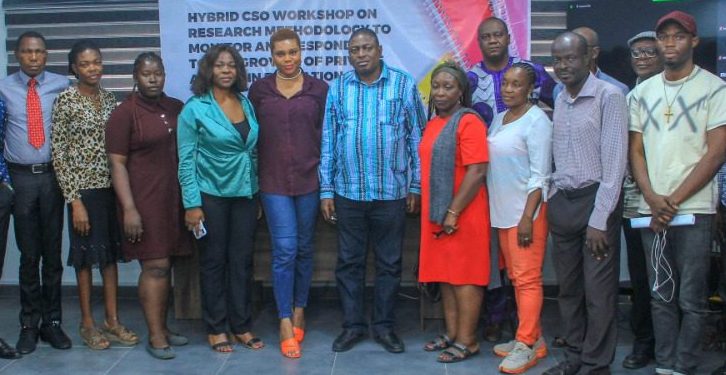The steady growth and influx of private actors in the education sector has been said to be responsible for the widening gaps in the quality and delivery of education between the rich and the poor. Such gaps need to be urgently addressed, through evidence-based advocacies, with a view to restoring the education sector and promote quality education for all, regardless of socio-economic status.
These were the submissions of Civil Society Actors working on Education, while sharing their concerns at a CSO workshop on Research Methodology to Monitor and Respond to the Growth of Private Actors in Education, which was organized by Global Initiative for Economic, Social and Cultural Rights (GI-ESCR) in collaboration with Corporate Accountability and Public Participation Africa (CAPPA).
Akinbode Oluwafemi, Executive Director at CAPPA while speaking on conducting advocacy based on CSO’s research, shared that the workshop is held at a time the education system in Nigeria is encountering numerous challenges with no end in sight with private sectors taking over the role of the government.
Oluwafemi mentioned that in-depth and quality research would help CSOs to strategically engage and address how the government has been failing to do its bit in making the education sector work and supporting private actors.
“The public education is not working and the government is supporting private actors with funds that are supposed to be committed to financing public schools,” Oluwafemi frowned, stressed that such anomaly needed to be tackled.
Johnstone Shisanya, Programme Manager, East African Centre for Human Rights, Kenya Chapter, urged CSOs to embark on research, especially as it would inform their engagement with the government regarding the eduxation sector.
He also stressed that research is important to hold the state accountable to do its obligations and to enable CSOs to be able to engage with policy makers effectively.
Corroborating him, Anderson Miamen, National Coordinator, Coalition for Transparency and Accountability in Education, Liberia noted that evidence based advocacy would help to promote inclusion and transparency in the education sector.
He noted that the right to free and quality education is under threat, and it is essential for CSOs to take necessary steps to ensure that this right is not denied.
Sharing country specifics and how the private actors have not contributed positively to the education sector, Mugoya Musa, Programme Officer, Initiative for Social and Economic Rights in Uganda explained that private schools in Uganda are inaccessible, low quality with minimal funding to deliver the right education needs for students.
Musa said, “access is a major concern as majority of these schools are established in urban settlements where the population is high, thereby disconnecting people in rural communities; poor financing, as private actors are looking at benefitting from the government, and poor quality in terms of school infrastructure, safety and sanitation, some schools do not even have adequate classrooms.”
He also highlighted how Schools are not inclusive for children with disabilities, thereby excluding them in the scheme of things.
Jointly moderated by Zikorah Ibeh of CAPPA and Aya Douabou, of GI-ESCR, the hybrid CSO workshop had in attendance media representatives and CSO Actors from Nigeria, Liberia, Uganda, and Kenya.

